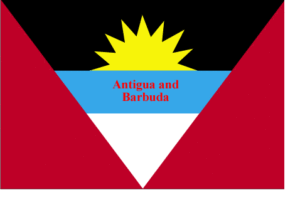 Antigua and Barbuda boasts one of the highest literacy rates in the Eastern Caribbean – around 90 percent. Education is free and compulsory for children between the ages of 5 and 16, and is provided through a combination of public and church-sponsored schools. The islands’ government funds all school fees through a levy on citizens.
Antigua and Barbuda boasts one of the highest literacy rates in the Eastern Caribbean – around 90 percent. Education is free and compulsory for children between the ages of 5 and 16, and is provided through a combination of public and church-sponsored schools. The islands’ government funds all school fees through a levy on citizens.
While early childhood education is not compulsory, it has become more prevalent given the government’s goal of ensuring students’ readiness for primary school. Primary schools serve pupils aged 5-11, with students 12-16 attending secondary schools.
The Caribbean Examinations Council administers the Caribbean Secondary Education Certificate (CSEC) for students in the Caribbean region to determine students’ success in their secondary studies. The scoring for this examination is as follows, with the overall grade reflecting the student’s performance on the unit as a whole while the profile grade reflects the performance on each module of the unit:
|
Overall Grades |
Profile Grades |
Description |
|---|---|---|
|
I |
A |
Candidate shows a comprehensive grasp of the key concepts, knowledge, skills and competencies required by the syllabus. |
|
II |
B |
Candidate shows a good grasp of the key concepts, knowledge, skills and competencies required by the syllabus. |
|
III |
C |
Candidate shows a fairly good grasp of the key concepts, knowledge, skills and abilities required by the syllabus. |
|
IV |
D |
Candidate shows a moderate grasp of the key concepts, knowledge, skills and competencies required by the syllabus. |
|
V |
E |
Candidate shows a very limited grasp of the key concepts, knowledge, skills and competencies required by the syllabus. |
|
VI |
F |
Candidate shows a very limited grasp of the key concepts, knowledge, skills and competencies required by the syllabus. |
Antigua State College uses the following grading scale:
|
Grade |
Standard Grading Scheme |
Engineering and Construction |
A-Level Department |
|---|---|---|---|
|
A+ |
95-100 |
95-100 |
95-100 |
|
A |
85-94 |
90-94 |
85-94 |
|
A- |
80-84 |
|
80-84 |
|
B+ |
75-79 |
85-89 |
75-79 |
|
B |
70-74 |
80-84 |
70-74 |
|
B- |
65-69 |
|
65-69 |
|
C+ |
60-64 |
75-79 |
60-64 |
|
C |
55-59 |
70-74 |
55-59 |
|
C- |
50-54 |
|
|
|
D+ |
45-49 |
65-69 |
|
|
D |
40-44 |
60-64 |
|
|
E |
|
|
40-49 |
|
F |
0-39 |
0-59 |
0-39 |
Curriculum in primary and secondary schools is child-centered and outcome-based and features instruction in language arts, mathematics, science social studies, fine arts, religion and physical education. Primary school Creole speakers may be taught bilingually until they reach English fluency.
The goal of secondary education in Antigua and Barbuda is to prepare students for success in further education and/or in the workplace. Students work to earn competency in core subjects (science, language arts, mathematics and social studies) and may choose from a variety of electives.
Secondary school graduates can choose from several post-secondary options. Antigua State College offers certificates in business studies, one and two-year teaching diplomas, and diplomas in engineering and construction. The college also offers three-year diplomas in pharmacy and nursing. The University of Health Sciences trains medical practitioners but is not widely recognized outside the islands. The University of the West Indies School of Continuing Studies offers a variety of programs for adults, while the Antigua and Barbuda International Institute of Technology enables students to earn associate degrees and certificates in accounting, banking and finance, graphic design and several computer-related disciplines.
© 2025 Gaetranslations | Terms & Conditions
Website by: Timefortheweb